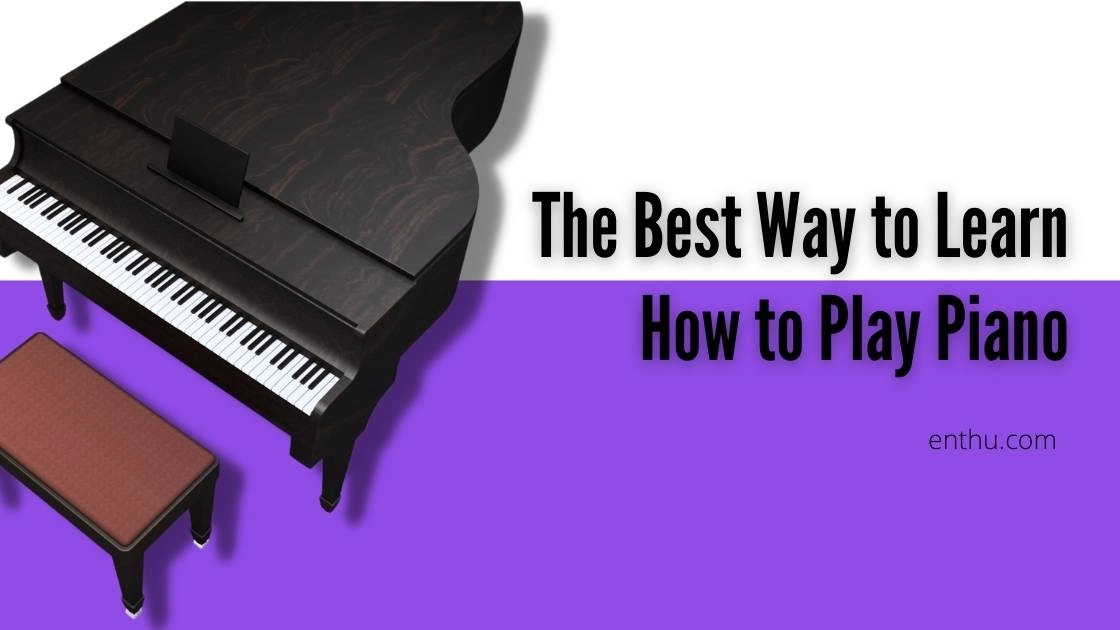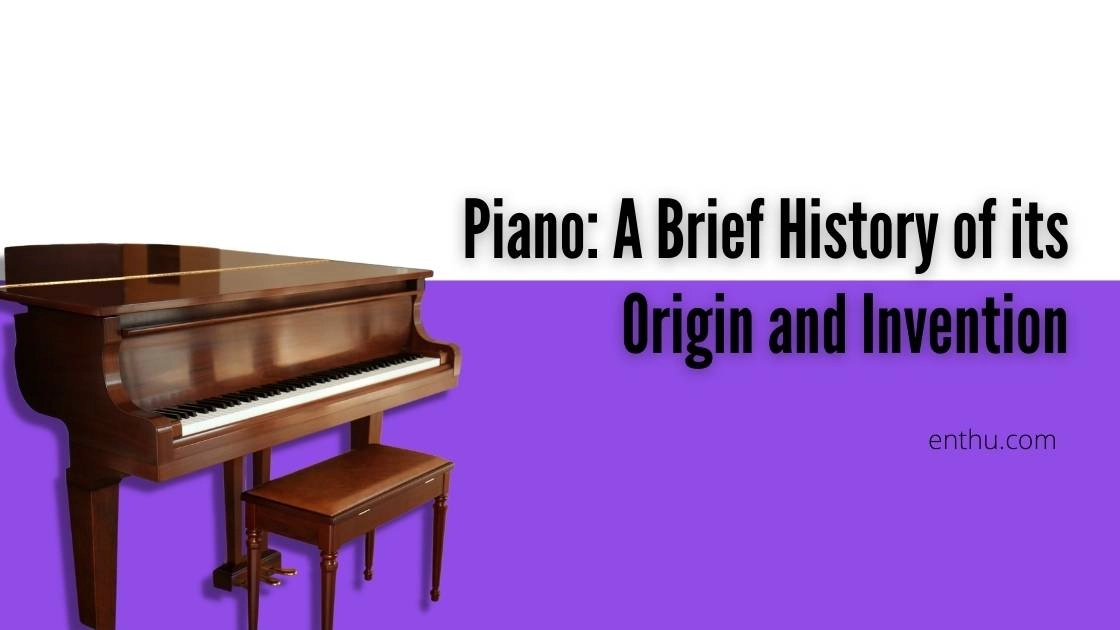Believe me, when I say this, buying a piano will be the most confusing thing you will ever do in your life, even more, when you are buying your first piano as a beginner.
Even professional pianists have very little idea about how to buy a piano keyboard. To help you choose the perfect piano for your initial practices, I have come up with a detailed piano buying guide in this write-up.
Before heading out for the store, ask yourself what kind of music you want to play, as it will affect your buying decision heavily. Also, think about a few other aspects like budget, accommodation, and commitment level. Now that you have thought it through, let's learn how to buy a keyboard piano for a beginner.
Wish to play piano like a professional?
How to Buy an Acoustic Piano
1. Grand Pianos Vs. Upright Pianos

There are two types of acoustic pianos: the grand piano and the upright piano. You may have encountered upright pianos in your school, church, or community center; on the other hand, grand pianos are not available in the public sphere. But you must have seen one in movies.
The pricing and attire of grand pianos and upright pianos are very different, but the difference in sound quality, pedals, and key action is not so obvious.
Key action: The strings in grand pianos are set up horizontally, so whenever you strike a key, the hammer returns to the original position much faster than an upright piano. It means that you can play fast notes more easily on a grand piano than on an upright piano.
Sound Quality: The sound in a piano is generated from the top and bottom of the instrument. As a grand piano is much larger than an upright piano, naturally, grand pianos offer a better and louder sound than an upright one.
Pedals: Grand pianos come with three pedals. On the other side, upright pianos come with two pedals. The missing pedal is, anyway, not much use, even by the professional pianists. As you are a beginner, you don’t have to worry about it.

Other Variants: Although grand and upright pianos are the most famous acoustic pianos in the world, there are some other variants too. One of these is the baby grand pianos.
These pianos are bigger in size than grand pianos but have shorter strings than an upright piano. However, pianists have often shown their dissatisfaction with this model, so I won't suggest you buy one of these.
If you're a beginner and want to buy an acoustic piano, go for an upright piano. An upright piano is affordable, takes up very little space, and its acoustic features are enough to help you develop your musical technique.
2. Budget
Let me warn you beforehand, the cost of the piano can be extremely volatile and confusing. Yamaha, Essex, Casio is the moderately priced piano manufacturers.
These brands offer upright pianos between $2000-6000. On the other hand, grand pianos are expensive. However, you can find a cheaper version if you buy an old one, but that depends entirely on the condition of the piano.
Bechstein, Fazioli, and Bosendorfer are the leading brands for grand pianos. The various models cost between $10000-200000.
How to Buy a Digital Piano
Digital pianos are a result of the recent past. These are easier to carry around, cheaper than most acoustic models, and easier to learn. However, controversially, they don't offer elegance in sound like the acoustic ones.
Digital pianos are a result of the recent past. These are easier to carry around, cheaper than most acoustic models, and easier to learn. However, controversially, they don't offer elegance in sound like the acoustic ones.
1. Different Types of Digital Pianos
First of all, a question should be coming to your mind about whether 'keyboard,' 'digital pianos,' and 'synthesizers' are the same? All you need to know for now is that digital piano is an umbrella term for all the keyboard instruments that are not acoustic pianos.
Home Console Piano: These digital pianos sound similar to acoustic upright pianos. These keyboards are perfect for beginners who want to get familiar with the instrument.
Slab Keyboard/Piano: These are portable keyboards, and you can easily set these up on a stand. You will find one of those in your college band. These are beginner-oriented keyboards.
Hybrid Piano: As the name suggests, these pianos are a combination of digital technologies and acoustic features. The sound resonates with upright pianos.
Synthesizer: These are made keeping music composers in mind. Synthesizers are packed with various sound effects and different tones and pitches.
You can also control these with software. All of these above-mentioned keyboard instruments are by-products of acoustic pianos. As a beginner, you can buy one of these for the time being and shift towards acoustic ones after a few years.
2. Things to Consider
There are multiple variants of digital pianos in the world. So, what should you look for while buying one? The first thing you should look for is the number of keys on the keyboard.
If you want to learn to play the piano, you should get a keyboard with 88 keys, which happens to be the key count on a grand piano. If you are a beginner, you should go for weighted touch-sensitive keys.

It will help you grow your musical skills, and you will learn how to manipulate the keys to produce particular sounds.
3. Price
Here comes the last yet most important factor that will help you choose the final product for you. Expectedly, digital pianos are way cheaper than acoustic pianos.
Brands like Kawai, Roland, and Casio offer digital pianos for beginners between $700-2000, which is a huge price drop considering acoustic pianos. If you want to buy a professional-grade digital piano or synthesizer, go for Yamaha pianos that will cost you between $2000-5000.
Also Read: How Much Do Piano Lessons Cost?

If you want to know about the keyboard in the recent market, then watch this video.
Why Is It Hard to Buy a Piano?
Buying a piano might be the most confusing thing you will ever do in your life. Even if you are a seasoned pianist, it would be hard for you to tell which piano is good and which is not.
That's why people often make mistakes while buying a piano. The reasons are:
1. Lack of Knowledge
Whenever we buy something expensive, we get social advice from our friends, family, and well-wishers. As the piano is an expensive instrument, not many from our known circle play it. In general, people get confused with all the variations, such as the grand piano, upright piano, keyboard, and hybrid piano.
And when we talk about modern piano, we mean pianos that are essential 19th-century creations. All of our piano knowledge is either outdated or not true.
Even music teachers and experienced players often know little about piano construction or the rapidly changing state of piano manufacturing. Usually, they rely on their previous experience with certain brands, most of which have changed over the course of time.
2. Wide Range of Choices
It gets confusing when you buy a car, even when you have hands-on experiences with them; imagine doing that while buying a piano. The moment you walk into a piano store, you will be astounded to see so many options out there waiting for you.
Alone in the United States, you will get almost 60-70 brands for acoustic pianos, with thousands of types for them. Each of these brands manufactures hybrid piano, digital piano, grand piano, and also upright piano.
Now imagine the confusion it will create when you step into the shop. Also, you will have to choose between new pianos and old pianos, which is a pretty hard task to do. If you are not a piano expert, it will be a very hard task for you to choose the right one from the wide array of options.
3. Doubtful Pricing
Let me tell you that the piano market is way more volatile than the stock exchange. New pianos vary in price from $1,500 to $200,000. An upright piano will cost you between $2000-6000. And the grand pianos cost somewhere between $8000-200000.
You will find a new grand piano worth $15000, even when you get a new one with just $10000. Confusing, right? Regardless of the cost, these look very similar and do the same thing: they're black (or brown), play 88 notes, and have three pedals.
The features advertised are often abstract, misleading, or difficult to see or understand. These are the reasons why people find it difficult to set a proper price for a piano, which often leads to bad choices.
Pro tip: If you find it hard to set a price for the piano you are buying, you can go to the shop with a professional who will do that for you.



Conclusion
I know it is hard to process all this information at once. Especially if you are a beginner, I would suggest you bring a knowledgeable friend with you to buy a piano for you.
Whichever you choose, don't forget to practice regularly, because there is no alternative to it. You should get enrolled in piano lessons for better understanding. Good luck finding the best piano!
FAQs
1. How can I choose a good piano?
Figure out whether you want a piano or a digital keyboard. If you want a piano, go through your budget and space. If you have plenty of both of them, you can buy a grand piano which costs around $10000-50000. Otherwise, you can go for an upright piano which will save you money and space.
2. What is the best piano for beginners?
The piano is a costly instrument. Before buying a piano for someone, you need to consider who is going to play it. If it is for a beginner, you can go for a beginner piano or an upright piano which will cost you less money than a grand piano. When the player becomes a pro, replace the old one with a grand piano.
3. What are the benefits of playing the piano?
Learning to play the piano has numerous benefits. It improves dexterity and fine motor skills. Mathematical skills are improved if you learn to play the piano. It decreases depression, anxiety, stress and momentarily relieves blood pressure. If you play it regularly, your hand and eye coordination will improve.
4. How do you know if your piano is in tune?
For most notes on the piano, the hammer strikes three strings tuned to the same pitch. If one of those notes is off, it will sound differently. The notes on a keyboard should sound clear and sweet, not twangy or buzzy. If your ear is telling you that something's not right, it's time to tune the keyboard.






Comments